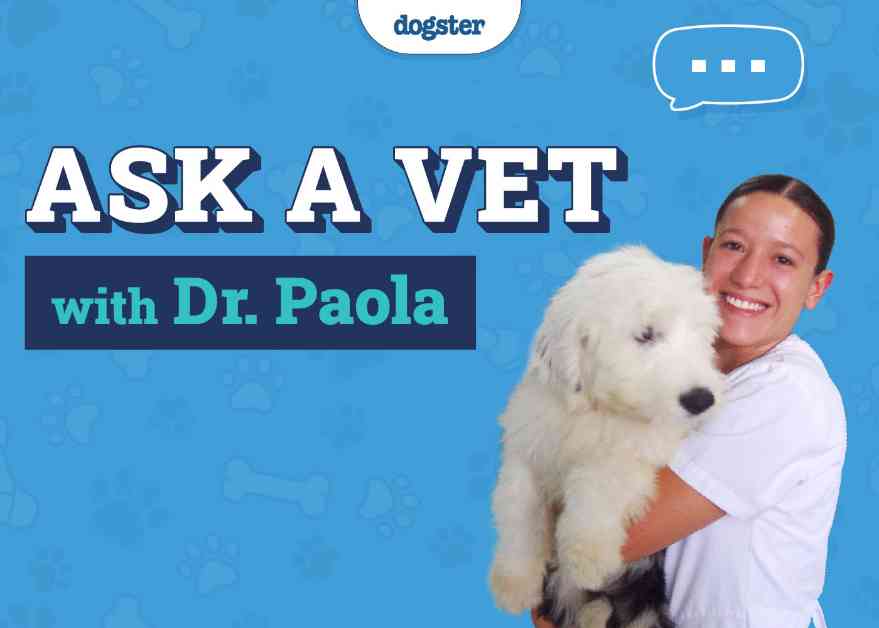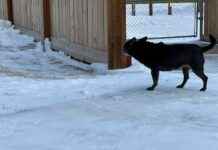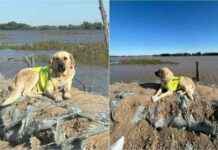Dr. Paola’s Advice for Dog Owners: January 6, 2025
Welcome to our “Ask Dr. Paola” series, where every Monday we bring expert advice straight from Dr. Paola Cuevas (MVZ) to help our readers better understand their dog’s health and well-being. Whether you’re a new pet parent or a seasoned dog lover, Dr. Paola is here to provide answers to your most pressing questions. From nutrition tips and preventive care to troubleshooting common behavioral issues, Dr. Paola is ready to offer insights that will keep your furry friend happy and healthy.
Help! My Dog Has Terrible Gas!
“Hello, my dog was passing really stinking gas after Thanksgiving dinner. I had given her some turkey broth with her dog food and also gave her the ham bone. I’m afraid it made her sick. When does the gas become an issue?” – Mercy (Mom to Lady Bella)
Hi Mercy. I am sorry to hear that Lady Bella isn’t feeling her best. Dietary indiscretions are a common culprit for stinky gas and other gastrointestinal signs. Turkey broth, if it is plain and free of seasonings like onions or garlic, is generally safe. However, it is not recommended to share cooked ham bones with your dog. They can cause problems because they are high in fat, which is hard for dogs to digest, and they can splinter, causing injuries or even perforations on the delicate mouth and digestive organs. While gnawing on safe raw bones can have some benefits for a dog’s teeth, most vets recommend avoiding them due to the risk of ingestion. Dogs are not meant to consume bones, because bones are indigestible. Once inside your dog’s body, they are considered foreign bodies and could cause infections and even result in emergency procedures due to digestive blockages.
So given that you know that she consumed the ham bone, in her case, the stinky gas could be a sign of a serious issue. When something partially obstructs the digestive tract—such as a bone, toy, or other foreign object—it disrupts the normal passage of food and gas, which could lead to fermentation and the buildup of foul-smelling gas. There are different kinds and grades of obstructions, and they usually present other significant signs, including vomiting, lethargy, abdominal pain, loss of appetite, and a swollen or tense abdomen. If Lady Bella consumed the ham bone and is experiencing stinky gas, you shouldn’t hesitate to seek veterinary attention promptly. Obstructions can become life-threatening if not treated in time. A veterinarian can assess her condition by taking some abdominal X-rays to evaluate the situation and come up with the best approach. In most cases, resolution requires surgery.
Best of luck,
Dr. Paola
Help! What Is the Best Flea Protection for My Pug!
“Wondering what you recommend for flea/tick and heartworm monthly med for pugs. Best protection and SAFE. Thanks so much.” – Joan (Mom to Levi)
Hi Joan, thank you for reaching out to us! In this space, we don’t provide specific product recommendations or prescriptions because we’re not able to establish a doctor-patient relationship with a particular dog. However, since you’re looking for the best and safest protection for your pug, my recommendation is to visit your veterinarian. They can evaluate your dog’s specific needs and recommend the most appropriate product for their situation.
While there are many products available for sale, your veterinarian’s input is essential to ensure your dog’s safety. For example, testing is required before starting heartworm preventive medication to rule out the presence of adult worms, which could complicate treatment. Similarly, tick prevention is increasingly complex due to different species of ticks in various regions and growing resistance to certain medications. Your veterinarian will know which products are most effective for the ticks in your area and might even recommend rotating products to ensure continued effectiveness. Their guidance is the best way to protect your pug’s health.
Dr. Paola
Help! My Dog Yawns A lot!
“My dog Milo yawns a lot—like, a lot—even when he’s not tired and in the middle of playing. Is this just one of those adorable dog quirks, or could it mean something about his mood or health? Thanks!” – Fernanda
Hi Fernanda,
Milo’s frequent yawning could indeed be an adorable quirk, but it can also have deeper meanings related to his mood or health. Dogs often yawn for different reasons that go beyond fatigue. In playful or active moments, yawning can be a calming signal—a way for Milo to regulate excitement or diffuse any tension during play. It’s part of how dogs communicate and manage their emotions.
However, if Milo’s yawning seems excessive, it might be an indication of stress, anxiety, or even nerves. Pay attention to the situations where he yawns the most. If it happens during specific activities or encounters, it could indicate he’s feeling overwhelmed or trying to self-soothe. Additionally, some medical issues, like mild nausea, discomfort or pain in the mouth such as that caused by foreign objects or dental issues, or even respiratory concerns, could be causing frequent yawning. This is why it is important to take note of the scenarios, triggers, and any other additional unusual signs as all this information is valuable.
Since dogs can’t speak, we rely on behavioral changes, signs, and the context of environmental scenarios to understand what’s going on with them. Your careful observation of Milo’s yawning is a reflection of how attentive and thoughtful you are as his mom—he’s lucky to have someone who pays such close attention to his well-being. Congratulations! By the way, fun fact: have you noticed that yawning is contagious between humans and dogs? If you yawn and Milo watches, he is likely to yawn, too.
Good luck!
Dr. Paola






















